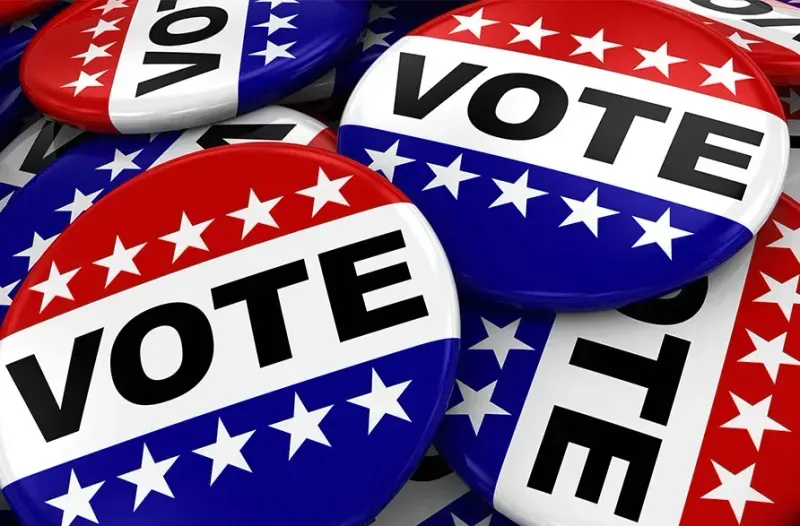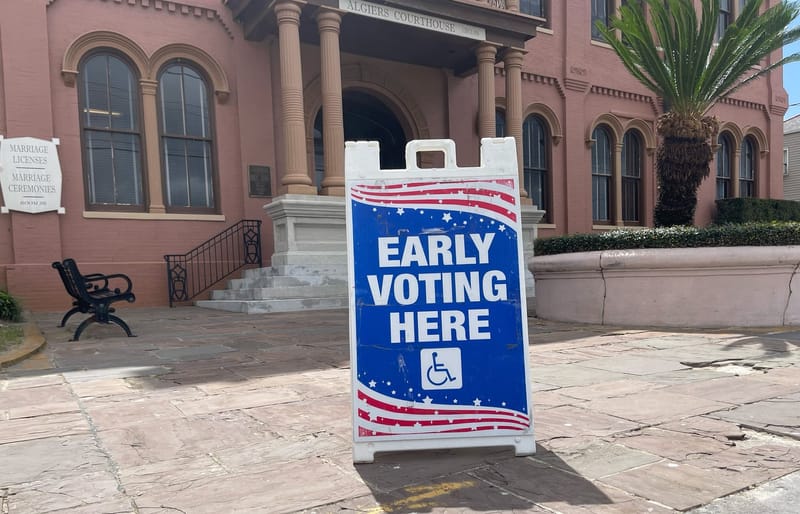Louisiana Voters Face Critical Amendments Amid Fierce Opposition
Prominent activist Gary Chambers and political commentator Roland Martin have emerged as leading voices in opposition to these amendments, urging Louisianans to vote “NO” on all four.
BATON ROUGE, La. — Louisiana voters will head to the polls this Saturday, March 29, to decide on four proposed amendments to the state constitution. These amendments—addressing judicial power, tax policy, juvenile justice, and election procedures—have sparked a firestorm of controversy, with activists and political leaders warning that their passage could have devastating and long-term consequences for Black communities, working-class citizens, and vulnerable youth.
Prominent activist Gary Chambers and political commentator Roland Martin have emerged as leading voices in opposition to these amendments, urging Louisianans to vote “NO” on all four. Their warning is clear: These measures are not just minor policy adjustments—they represent a direct threat to social justice, economic equity, and civil rights in the state.
As voter turnout concerns grow, the fight over these amendments has intensified, with grassroots campaigns mobilizing across Louisiana to counter what they call a dangerous political maneuver.
AMENDMENT 1: Special Courts and the Expansion of Judicial Power
The first amendment would grant the Louisiana Supreme Court new authority to discipline attorneys licensed outside of Louisiana who are practicing in the state. Additionally, it would allow the state legislature to create specialty courts with limited and specific jurisdictions.
Supporters' Argument:
- Proponents say this measure would enhance oversight and ensure ethical legal practices within the state.
- Specialized courts could increase judicial efficiency by handling cases in distinct areas of law, such as business litigation, family law, or environmental disputes.
Opponents’ Concerns:
- Critics warn that granting the legislature the power to create courts with limited jurisdiction could lead to political manipulation of the judicial system, favoring the interests of those in power.
- There is no clear definition of what these specialty courts would be, raising concerns that they could be used to target marginalized communities or enforce selective justice.
- Activists argue this amendment opens the door for unequal legal protections under the guise of judicial reform.
Chambers and Martin have broadly opposed all four amendments, expressing skepticism about how such judicial power shifts could negatively impact already vulnerable communities.
AMENDMENT 2: A Tax Overhaul with Far-Reaching Consequences
Amendment 2 proposes sweeping changes to Louisiana’s taxation and fiscal policies, altering income tax rates, property tax exemptions, government spending limits, and funding allocations.
Key provisions include:
- Lowering the maximum state income tax rate for individuals and businesses.
- Increasing tax deductions for residents over 65.
- Imposing a government growth cap, restricting how much state spending can increase annually.
- Maintaining property tax exemptions for religious organizations and primary residences.
- Allocating surplus state funds to teacher retirement debt to free up money for salary increases.
Supporters' Argument:
- Proponents claim these changes would make Louisiana more competitive economically by lowering taxes and limiting government expansion.
- The proposed allocation of surplus funds toward teacher retirement debt could create long-term stability for educators.
Opponents’ Concerns:
- Activists fear that tax cuts will disproportionately benefit corporations and the wealthy, while reducing state revenue for crucial public services.
- Tying teacher pay increases to unpredictable budget surpluses could leave educators vulnerable to financial instability.
- Government spending limits could result in budget cuts to critical programs, including healthcare, education, and social services that predominantly impact Black and low-income communities.
Chambers and Martin have cautioned that these changes, while framed as economic relief, could ultimately undermine essential public services and widen economic disparities across Louisiana.
AMENDMENT 3: Expanding the School-to-Prison Pipeline
This amendment is one of the most alarming proposals on the ballot, seeking to give the Louisiana legislature the authority to determine which felony offenses—when committed by juveniles under 17—should be prosecuted in adult court.
Current Law:
- Louisiana law currently allows judicial discretion in deciding whether a minor should be transferred to adult court based on the severity of the offense and other factors.
- Judges can consider a youth’s background, the nature of the crime, and the potential for rehabilitation before making such a decision.
What This Amendment Does:
- Removes judicial discretion, giving lawmakers the ability to dictate which offenses would automatically transfer minors to the adult system.
Supporters’ Argument:
- Proponents claim this amendment ensures harsher penalties for violent juvenile offenders and acts as a deterrent to serious crimes.
Opponents’ Concerns:
- Critics, including Chambers and Martin, warn that this amendment systematically targets Black youth, exposing them to harsher sentences, adult prisons, and long-term incarceration.
- Sending minors to adult courts and prisons has been proven to increase recidivism rates, making rehabilitation far less likely.
- Juvenile justice advocates argue that this amendment strips young offenders of due process, forcing them into a system designed for adults rather than focusing on rehabilitation and second chances.
Activists have condemned this amendment as a direct attack on Black and marginalized youth, warning that it will deepen racial disparities in the criminal justice system.
AMENDMENT 4: Fast-Tracking Judicial Elections—At What Cost?
This amendment proposes requiring that judicial vacancies be filled using the earliest available election date.
Supporters' Argument:
- Proponents argue this amendment would reduce delays in filling judicial positions and ensure that vacancies don’t disrupt the legal process.
Opponents’ Concerns:
- Critics argue that rushing judicial elections could favor well-connected insiders while disadvantaging qualified but lesser-known candidates.
- An expedited election process may reduce voter awareness, preventing citizens from making informed choices.
- Some fear that prioritizing speed over deliberate, well-organized elections could weaken judicial diversity and fairness.
While this amendment may seem minor compared to the others, opponents believe it’s another way to manipulate the political and judicial system to benefit those already in power.
A Statewide Call to Action: “Vote NO on All Four”
The call to reject all four amendments has gained tremendous momentum online, with Louisiana residents using social media to urge their communities to take action.
"These amendments do nothing for us—they only take away more rights, more opportunities, and more fairness," one voter commented.
Another added, "If we don’t show up and vote, these policies will destroy Black communities. They want us in prison. They want us broke. They want us silent."
With concerns over low voter turnout, activists are pushing a final message:
This election is not just about policy—it’s about power. Louisiana voters have a chance to reject a system that threatens to roll back progress and deepen inequality.
The stakes could not be higher. Will the people of Louisiana rise to the challenge, or will these dangerous amendments become law? The answer lies in the hands of those who show up at the ballot box this Saturday.







